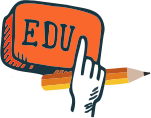
Kits are purchased from manufacturers or assembled at a centralized location within the college district. School or district science centers are additionally answerable for refurbishing used kits in order that they could be distributed and reused a number of occasions throughout each school yr (Lapp 1980). Centralized administration and distribution of supplies help to ensure that all college students have equally rich science experiences. “Science requirements for all children” (NRC 1996) implies addressing these patterns of alternative and achievement through distribution of high quality resources, instructor coaching, and pupil alternatives across all classrooms and colleges. In addition, particular classroom administration and tutorial techniques, corresponding to these mentioned earlier in this article, encourage profitable participation in science learning activities by college students of diverse backgrounds.
Consider these elements in detail, as there’s more than likely an internet faculty that fits your exact wants. This 30 credit score online master’s in science training requires 12 credits of interdisciplinary science courses in a variety of associated fields, together with environmental science, physics, earth science, biology, chemistry, engineering, and microbiology.
Bachelor of Science Education
Further, the public has typically been extra conscious of and supportive of technological advances than those of primary science. Knowledge of scientific facts and processes among the basic public in the United States correlates carefully with attitudes toward science. People who know more about science tend to believe that it has a positive position in society and has the potential to contribute to the public good. The general proficiency degree in mathematics has been climbing in the fourth and eighth grades since 1990, however it has been stable at these grades in science, and twelfth-grade proficiency in science has fallen considerably since 1996 (Figure 2.four).
The NRC Standards clearly identifies the necessity for ongoing partnerships amongst scientists, instructor educators, teachers, and faculty districts as a method to address shortcomings in the nation’s present approaches to science education. Explora, like many different science centers, additionally offers professional-growth packages for lecturers.
Consider any on-campus or in-person necessities, and weigh your capability to complete them. Graduates of grasp’s in science schooling on-line programs go on to work in analysis, governmental, and administrative roles, in addition to careers in the arts and humanities, similar to archivists and curators. These graduates can even work in the nonprofit sector, working for healthcare organizations, or as tutorial coordinators for complete college districts.
Closing down of the outdated and appointing a brand new ”progressive” Academy was also mentioned. The urgent actions of the Executive Council of the Academy prevented these plans.
These natural introductory activities help scientists gain appreciation for the college setting and allow teachers and scientists to turn into acquainted and feel comfortable with each other. The “comfort” factor—being considered as pleasant, flexible, and wanting to share—is crucial for scientists who need to set up relationships with lecturers and schools. Some parents may criticize programs that explore four to six “big” themes per year as lacking rigor as a result of these applications aren’t primarily based on a thick textbook. Other parents will insist on seeing conventional classroom products, similar to worksheets and quizzes. Some faculties and faculty districts have found that obtaining early assist from mother or father organizations greatly facilitates the transition from conventional to inquiry-centered science programs (NSRC 1997).
But many leaders in the subject often referred to as “informal science schooling” say that’s starting to alter. There are signs that this sector is garnering wider consideration and starting to be included in broader discussions on the way to improve science studying amongst younger folks. What’s typically lacking from the nationwide dialogue on the problem is a concerted focus not merely on what happens in the classroom, but additionally on the opportunities to learn about science—and to encourage a passion for the subject—that come outdoors the varsity day and the formal curriculum. Jacqueline Miller, Ph.D, is a senior research scientist at Education Development Center (EDC).
Figure 2 shows the ratings and the substantial differences between the three international locations studied. It is obvious that U.S. educational practices mirror the incoherent presentation of mathematics that characterizes our intended curriculum. International comparisons of education maintain important classes for enhancing scholar achievement. Diversity programs are shifting their focus from simply offering academic help to creating a studying surroundings that’s more inclusive of people of different backgrounds.

